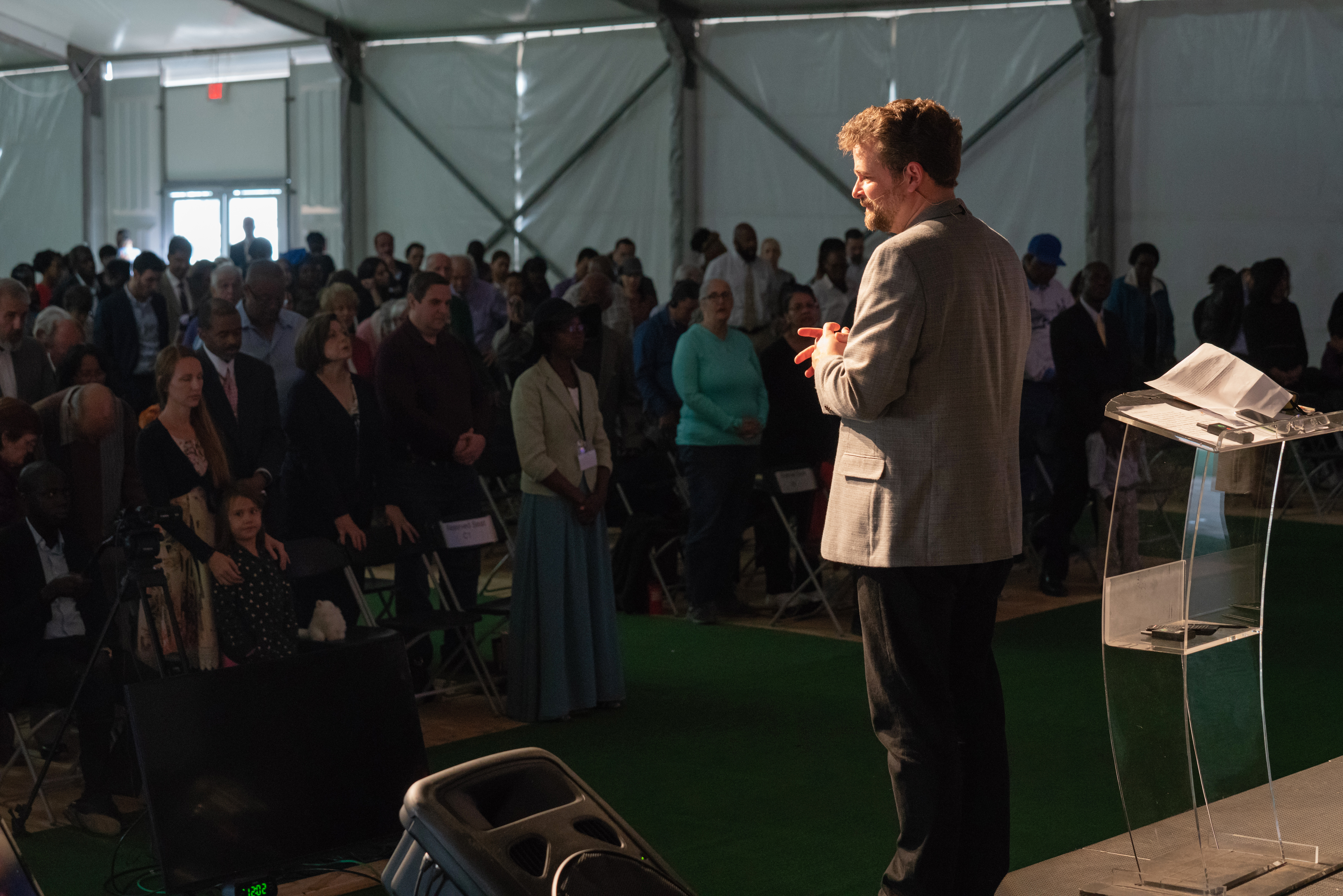
Homeless
I was walking through the neighborhood the other evening when, about two miles from home, I came across something you'll see in thousands of American neighborhoods at the end of any given month: moving trucks.
It's not unusual to see one moving truck parked on the street or in the driveway, but on this occasion, I paused for a moment because there were two.
Apparently, someone was eager to complete his or her transition quickly. The moving company? Two Men and a Truck. In this case, I assume there were four men and two trucks.
I stopped and watched as an obviously weary man unloaded the last few boxes into the garage. I suddenly relished the thought that in about half an hour, I would be walking into a house that was fully equipped for daily life. It was comfortable: food in the fridge, clean towels in the closet, clothes in the closet, and a fully assembled bed inviting me to enjoy a good night's sleep. Not so in this house, I thought, as I looked at the massive pile of taped and labeled boxes that completely filled the garage. Long after their neighbors went to bed, these poor people would be wearily searching for toothpaste and pajamas, and then stumbling through a calamity of partially opened boxes to a mattress on the floor. Dinner would probably be served in a brown paper bag impersonally handed to them through a drive-through window.
It wasn't hard to imagine what the inside of the house was like, because I've moved—a lot. I am not yet fifty years of age, and I am already living at my 25th street address. Jean and I own hundreds and hundreds of collapsed boxes that have spent most of their lives quietly waiting to fulfill their purpose in attics, garages and basements. Only since moving to Colorado to be with the Voice of Prophecy have we discarded any of them.
Nobody really enjoys moving. Just thinking about it activates weary body memories in muscles that have only just recovered from the last one.
I have a system: the moment I discover we'll be moving to a new address, I drive home and pull all the pictures off the walls. It's a practice that drives Jean . . . well, up the wall. But to me, it serves as a daily visual reminder that I need to be constantly about the business of preparing to leave.
The upside of constantly moving? New people, new experiences, new places. The downside of constantly moving? New people, new experiences, new places. I have moved often enough that no place truly feels like home. I have no deep roots . . . anywhere. There are locations I find interesting and choose to identify as home—places like the tiny town I was born in or the countries from whence my ancestors hail. But it's a half-hearted label, because none of them are really my home. Too much time has gone by. Too much has changed.
As Heraclitus of Ephesus famously observed, you cannot step twice into the same river. And alas, all of the rivers I have inhabited have been radically altered by the flow of time.
If by home you mean a geographical location, I don't really have one. My home is people: Jean and the kids. Places are not homes. Places leave me feeling restless, eager to see what lies over the horizon. To be sure, I can settle into one place for a very long time—hopefully decades in my present location—but it is still not really home.
Perhaps it's a good thing, because none of us will be truly home—none of us will be completely rid of a nagging sense of displacement—until we physically reside in the presence of God. That will be home. The Bible declares that God has placed eternity in the human heart (Ecclesiastes 3:11): a hard-wired restlessness, a divine reminder that we are headed somewhere other than here. An unremitting sense that this place, as it is, cannot possibly be home. Like Paul, we understand that our citizenship is in heaven. (Philippians 3:20)
Before my friend Henry succumbed to cancer, he used to tell the story of a missionary and his wife who were forced to come home because of a serious illness. They returned by ship, steerage class. As the boat trudged its way towards America for two longs weeks, the couple noticed a famous American diplomat on board who was also returning home to retire. He was, of course, traveling first class. Before too many days had passed, it became obvious that the man was an utter cad: he was constantly drunk, and incessantly made lewd passes at much younger women—in spite of the fact that he was traveling with his wife.
He was hard to watch, and even harder to be around.
When the ship finally pulled into port, there was a huge delegation with balloons and banners waiting on the pier—a receiving party for the ambassador. As soon as the man stepped off of the ship, a band started playing and a group of important people gave presented him with an impressive plaque to commemorate his years of service. They gave his wife a gorgeous bouquet of flowers. Flashbulbs flashed, reporters took notes. It would be a front page story. A limousine waited to take them to their luxury suite at a full-service hotel.
When the missionary couple walked ashore, there was nobody to greet them. Unable to afford a taxi, they had to carry their own bags through the city to a shabby hostel that even cockroaches might have scoffed. When the weary travelers got to their room and sat on the edge of the bed, the man noticed that his wife was quietly crying.
"What's the matter?" he asked, putting his arm around her shoulder.
"It's that man!" she sobbed. "He was SO awful, and they treated him so well! And here we are: sick and dead broke—our lives are winding down pitifully—even though we've worked just as hard as him—and there was nobody waiting to welcome us!"
The man put his arm around his wife and whispered, "But honey, we're not home yet."
He was right:
And I heard a loud voice from heaven saying, “Behold, the tabernacle of God is with men, and He will dwell with them, and they shall be His people. God Himself will be with them and be their God. And God will wipe away every tear from their eyes; there shall be no more death, nor sorrow, nor crying. There shall be no more pain, for the former things have passed away.” (Revelation 21:3,4)
Until that moment comes, you and I will live with a nagging sense that this place is not our home. Come quickly, Lord Jesus.
Come quickly.



